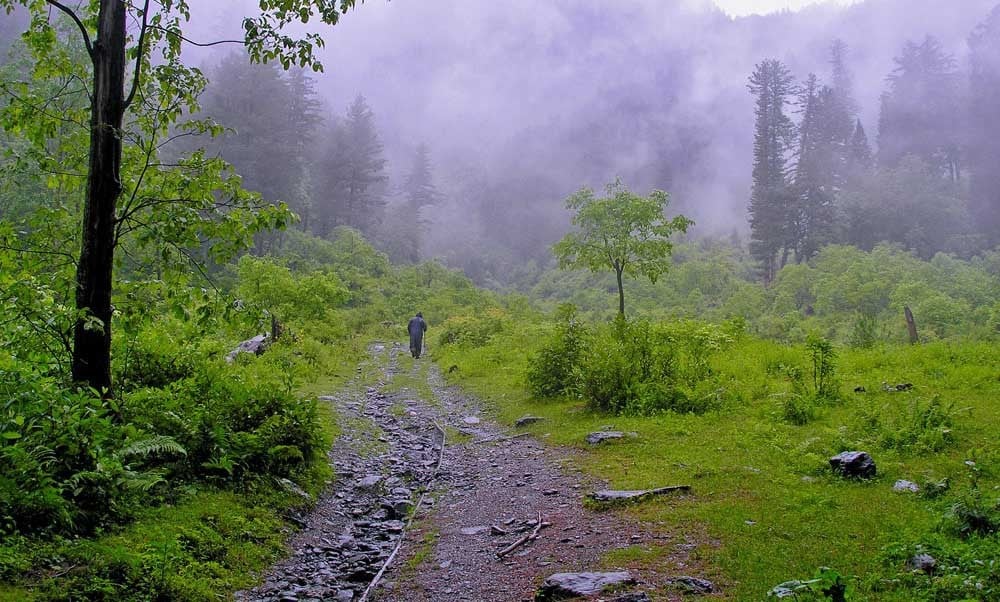
Tourism in Pakistan has got a good start to the New Year with two international mentions in travel lists for 2018. Will the government use this opportunity to make Pakistan a viable tourist destination

Pakistan is not one for standing with the crowd. In numerous lists, it finds itself either on the top or at the bottom of various indexes -- most affected by terrorism, or one of the only two countries with the polio virus or at the bottom of the global hunger index… you get the idea?
Yet, recently, the country was declared the ‘world’s leading adventure travel destination’, by the British Backpacker Society. While the society is not necessarily a leading name in global tourism, the fact that Pakistan even got a mention is telling.
They are not alone in mentioning our country. Last week, the Financial Times also mentioned Pakistan in a list of alternative travel destinations to go to in 2018. Other countries in the list included Zimbabwe, Bolivia, Seychelles and, surprise surprise, the Kingdom of Saudi Arabia.
It would be safe to assume that with the security situation getting increasingly better, tourists would return to the country which has so much to offer in terms of natural beauty.
And, it would make common sense to assume, that with the influx of a higher number of tourists in the country, the tourism industry, hotels, restaurants, equipment renters and many more related to the industry will rake in more money.
According to Mushahid Ali, from Caravan Travels, a reputed tour operator based in Islamabad, that is not the case. "Most of the tourists coming to Pakistan are backpackers, who look for couch surfing solutions for their stay rather than putting up at hotels across the country. Whenever a foreigner indicates online, on Facebook or a forum, that he or she wants to visit Pakistan, locals offer their homes as accommodation."
This, according to Ali, takes away from the positive monetary impact the tourists would have had on the tourism industry, had they stayed in local hotels, and eaten from local restaurants. He cites China as an example, "where a tourist visa is granted only via a tour operator".
A recently released report, compiled by the Pakistan Institute for Conflict and Security Studies (PICSS) shows that there were 23 suicide attacks in the country in 2017, compared to 17 and 18, in 2016 and 2015 respectively. However, none of these incidents happened in the north of the country, where a bulk of these tourists head.
"Outside of a few isolated incidents in the last 10 to 15 years, areas such as Gilgit Baltistan, Chitral etc, has been very peaceful," says Ali. One such incident occurred at the basecamp of Nanga Parbat in 2013, where 10 climbers and a local guide were killed. A year earlier, in Kohistan, 18 Shia passengers were forced off a bus and shot dead and a similar incident happened in Mansehra District in the same year, with 19 Shias shot dead point blank. However both these incidents had sectarian motives at play, whereas the Nanga Parbat incident, to Ali at least, had a singular motive at play: "to hurt Pakistan’s already diminished tourism industry".
Still, ever since the Nanga Parbat incident, the security has been beefed up exponentially. "Whenever there is a foreigner, there is at least one policeman who accompanies them on the route," says Ali. "If there is a larger group of foreign tourists, then there is a convoy which is with them."
At the same time, the local administration and police does keep a record of all the tourists coming in and moving about. "The moment these visitors land in the area, be it Gilgit, Chitral, or Skardu, they are met by a representative of the Department of Tourist Services (DTS), where they have to show their identification, along with details of where they’re going, the tour operator who will be accompanying them, where they will be staying etc," says Shiraz Nasir, the founder of Adventure Travel Pakistan, another popular tour operator.
As these visitors move along their route, at most checkposts, the police records the details of all persons passing through, including that of the vehicle being used.
However, Nasir is quick to add that this increase in tourism in Pakistan’s north is organic, based on positive experiences of previous travellers, rather than the outcome of a systematic campaign by the Pakistani authorities to present the country as a viable tourism destination. He cites the example of Incredible India, a campaign launched in 2002, with the aim of attracting foreign tourists to the country, which was later expanded in 2009, to target domestic tourists as well.
On the contrary, Nasir is of the opinion that the government has made things more difficult. He cites Skardu as an example, where a No Objection Certificate (NOC) was made mandatory last year. "It’s an open zone, unlike the K2 basecamp, which is close to the line of control (LOC). These visitors get a Pakistani visa after so much scrutiny and after crossing so many unnecessary hurdles, forcing them to get certificates either from the ministry of interior or the foreign office."
As bizarre as it sounds, Nasir says that local tourists also face a lot of problems at checkposts, "more so than the foreigners".
In 2017, India allocated Rs1,840.77 crore (INR) to the tourism industry. Since tourism is a provincial subject in Pakistan, each province makes its own allocations. Gilgit Baltistan, which has the lions share of both domestic and international tourists, set aside Rs54 million for the industry, which according to a news report will be used to set up tourist information desks in all the districts of the region in addition to setting up camping sites. Punjab, arguably the cultural capital of the country, announced Rs380 million in the same year, ‘"for the development, beautification and preservation of existing and potential tourist locations". A decrease of 52 per cent from the last year.